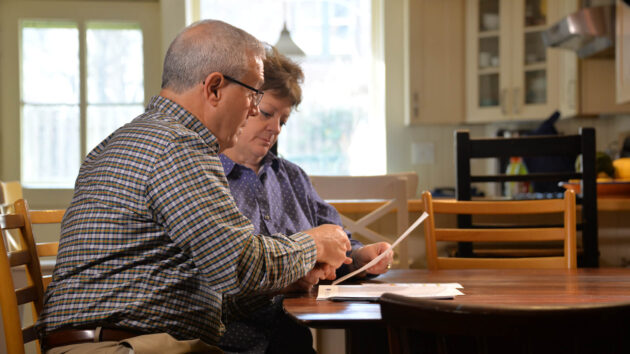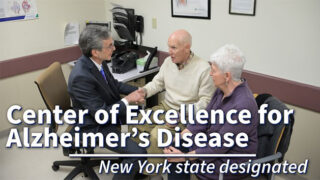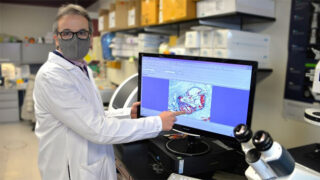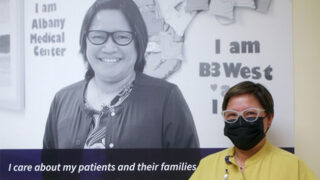Alzheimer's Education & Support
The Anne B. and Lean J. Goldberg Alzheimer's Resource Program
Leon Goldberg made a pledge in 2002 to establish the Anne B. Goldberg Alzheimer's Resource Center following the death of his wife, Anne, from Alzheimer's disease. The center provides information about care management and support for Alzheimer's patients and their families. His support continued each year, with gifts matched by General Electric, where he worked as an electrical engineer for 42 years. Since his death in 2007, the Leon J. Goldberg Foundation has continued his philanthropic commitment to the center, which is now named the Anne B. and Leon J. Goldberg Alzheimer's Resource Program. The program ensures that resources are available for staff to facilitate programs, trainings, and collaborative partnerships.
Advance Care Planning
When caring for someone with Alzheimer's disease it is important to plan ahead.
Five Types of Advance Directives in New York State
- A Health Care Proxy lets you appoint a health care agent, which is someone you trust to make health care decisions for you if you are unable to make decisions for yourself.
- A Living Will allows you to leave written instructions that explain your health care wishes, especially about end-of-life care. You cannot use a Living Will to name a health care agent; you must use a Health Care Proxy.
- A Living Will together with a Health Care Proxy lets you state your health care wishes and name a health care agent.
- A Do Not Resuscitate Order (DNR) lets you express your wish to do without cardiopulmonary resuscitation (CPR), which is emergency treatment to restart your heart and lungs if your heartbeat or breathing stops.
- Medical Orders for Life-Sustaining Treatment (MOLST) are one way of documenting a patient's treatment preferences concerning life-sustaining treatment.
The Albany Guardian Society provides transportation and housing options for seniors in the Capital Region.
The Alzheimer’s Association provides a wealth of information for patients and caregivers. The Alzheimer's Association also has 24/7 helpline at 800-272-3900. The helpline provides reliable information and support to patients, caregivers, health care professionals, and the public.
Early-Onset Alzheimer's Disease: A Resource List from the National Institute on Aging.
The Alzheimer's Association provides specific information on MedicAlert and Safe Return safety programs.
The New York State Department of Health provides information for patients, caregivers, and health care professionals, as well as helpful information about brain health and reducing risk factors for cognitive decline.
- The Northeastern NY Chapter of the Alzheimer's Association offers numerous supports groups for patients and caregivers, both in-person and online. Visit the Alzheimer's Association to find the one that's right for you.
- The Frontotemporal Degeneration (FTD) Caregiver Support Group meets via Zoom every third Tuesday of each month. Connect with people who understand. For more information, contact Alzheimer's Center Director Nancy Cummings at [email protected] or The Association for Frontotemporal Degeneration.
We have a number of Webex presentations and other materials available to medical professionals. For more information, contact us at 518-262-0800 and we will help you find the information you are looking for.
The partnership between the Anne B. and Leon J. Goldberg Foundation and the Center of Excellence for Alzheimer’s Disease (CEAD), the Alzheimer’s Center at Albany Medical Center, is profoundly meaningful.




